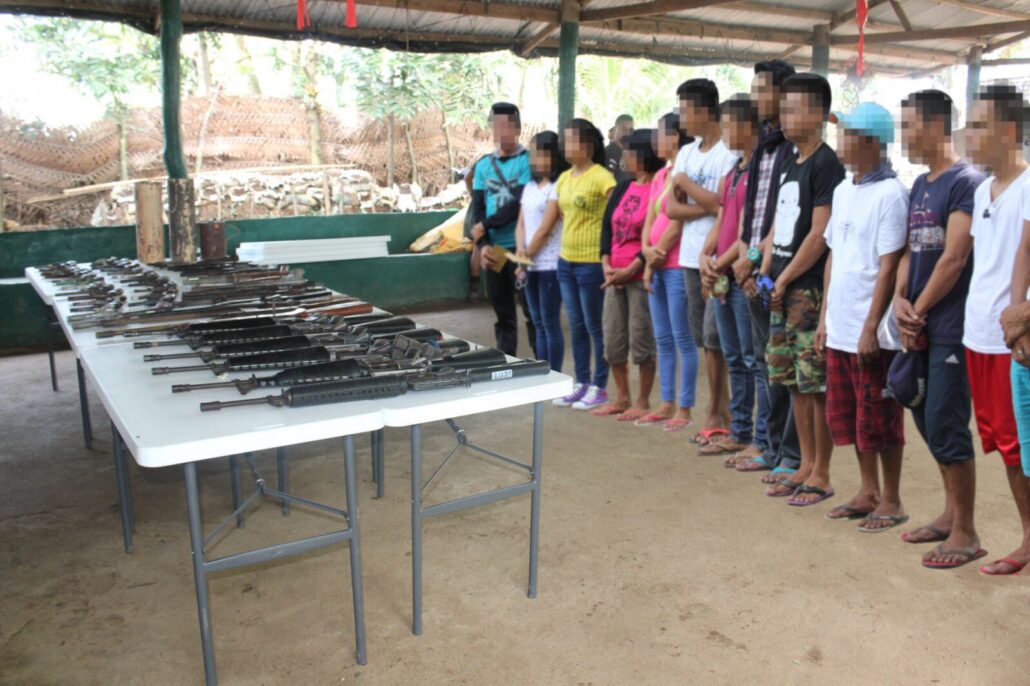Groups slam school’s decision to turn over peace books to military
Groups slammed the reported decision of a state university to turn over copies of Government of the Republic of the Philippines (GRP) and National Democratic Front of the Philippines (NDFP) peace negotiation books to the military and the police.
Pilgrims for Peace, ACT for Peace and the Student Christian Movement of the Philippines (SCMP) said the decision by the Kalinga State University (KSU) was a move for the mis-education of students about the peace negotiations between the parties.
In a statement last Saturday, September 11, Pilgrims for Peace said it is deeply concerned about the decision of the KSU Board of Regents (BoR) to withdraw from its Bulanao Campus Library 11 books on the peace negotiations between the Manila government and the NDFP.
The books include the Comprehensive Agreement on Respect for Human Rights and International Humanitarian Law (CARHIHL) English-Filipino; CARHIHL English-Hiligaynon; CARHIHL English-Visaya; GRP-NDFP Declaration of Understanding; NDFP Declaration and Program of Action for the Rights, Protection, and Welfare of Children; and The GRP NDFP Peace Negotiations: Major Arguments and Joint Statements-September 1, 1980-June 2018.
Also included were The GRP-NDFP Peace Negotiations Major Written Agreements and Outstanding Issues; NDF Adherence to International Humanitarian Law; Letters to the International Committee of the Red Cross (ICRC) and the UN Secretary-General; NDFP Adherence to International Humanitarian Law: On Prisoners of War (POWs); two articles on The People’s Struggles for Just Peace; and The NDFP Reciprocal Worrying Committee (RWC) Respective on Social and Economic Reforms.
The books were published by the NDFP Nominated Section of the Joint Secretariat of the CARHRIHL Joint Monitoring Committee based at the Diocese of Cubao in Quezon City.
“[T]he university administration has practically surrendered its academic freedom to the state security agencies that have constantly undermined our people’s quest for a just and lasting peace,” the group said.
Pilgrims for Peace added KSU’s “dismaying” decision was blind allegiance to the “myopic anti-insurgency campaign” of the Rodrigo Duterte administration.
“As a result, these university officials are now [instruments] in the state’s efforts to vilify not only the NDFP but also those who fight for academic freedom, human rights, and just peace,” the group’s statement said, also signed by ACT for Peace and the SCMP.
The groups added that the school has become complicit in the vicious red-tagging campaigns against by the National Task Force to End Local Communist Armed Conflict that has led to extra-judicial killings, unjust searches and illegal arrests, and a host of other human rights violations.
The Manila Times reported last September 9 that the KSU-BoR has decided to withdraw the books from one of its libraries to “protect students from embracing ‘NDFP ideology.’
The report said the military has lauded the decision.
The peace advocates however urged university officials to rethink their decision and study the books.
The groups noted that CARHRIHL has been hailed by the European Parliament as a “landmark” agreement and an outstanding achievement of the GRP-NDFP peace negotiations, along with the Joint Agreement on Safety and Immunity Guarantees.
“These materials are readily available online, with different sites hosting them, including the International Committee of the Red Cross (ICRC) and the United Nations Peacemaker website,” they added.
“We encourage them to study the peace negotiations between the GRP and the NDFP. Furthermore, study the roots of poverty and political unrest in the country,” the groups said.
Higher Education commissioner and KSU-BoR chairperson Lilian de las Llagas has yet to respond to Kodao’s request for comment.
Commission on Higher Education chairperson Prospero de Vera was involved as GRP Negotiating Panel adviser immediately prior to his appointment to his current position. # (Raymund B. Villanueva)

